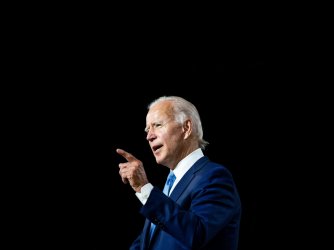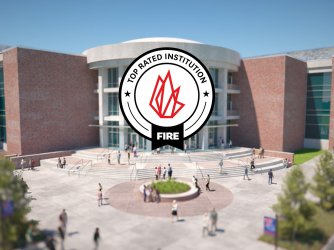Table of Contents
'Chronicle' Article on Emeritus Faculty Highlights Case of Wronged UNC Professor
The Chronicle of Higher Education has published an interesting article on the vagaries of emeritus faculty status and what it means at various universities—i.e., whether it comes with perks or is merely symbolic.
In part, the article focuses on recent controversial cases in which emeritus status was denied. In one case, law professor Robert Natelson was denied emeritus status by a vote of his fellow faculty at the University of Montana; he believes the cause to be his outspokenly conservative political views. Another case involves Professor William Ayers of the University of Illinois at Chicago (whose right to speak FIRE has defended on numerous occasions), whose bid for emeritus status was rejected by the trustees of the University of Illinois due to his political activities in the 1970s (Ayers was a founding member of the Weather Underground movement) before becoming a professor.
Those stories alone merit a full read of the article, but also included in the Chronicle piece is the story of Professor Emeritus Elliot Cramer of the University of North Carolina at Chapel Hill, who had his university network privileges revoked due to the agitations of a non-UNC-affiliated individual who drew UNC into his private dispute with Cramer.
The Chronicle notes that at UNC, "emeritus status is automatically conferred on all retiring faculty, earning them, among other benefits, 'full professorial library privileges.'" It continues:
[Cramer] had ... linked from his university Web site to a page detailing a conflict with a fellow animal-rights activist, Joseph Villarosa. After Mr. Villarosa complained repeatedly to the university's general counsel, Lesley [sic] C. Strohm, about Mr. Cramer's use of the university network, the university stripped his access. In an e-mail to Mr. Cramer, Holden Thorp, chancellor of the Chapel Hill campus, wrote that the professor had violated the university's policy on personal use when he "embroiled the university in ... personal issues and diverted university resources from the things we really need to focus on to a degree that is simply unacceptable."
In fact, UNC stripped Cramer of his network access even after telling Villarosa that his dispute with Cramer was "not a university matter" and that it saw "no reference ... whatsoever" to him on Cramer's site. Of the impact on Cramer of losing his network privileges, the Chronicle writes:
To the administration, Mr. Cramer's access had been a privilege, but to Mr. Cramer it was a reward for decades of service. He argues that as an emeritus faculty member, he was entitled to use the network for both personal and professional purposes and says that his lack of access will inhibit his scholarship going forward.
"I cannot access online journals at home, which interferes with my continued professional activities," he wrote in an e-mail. "I am outraged at the university's treatment of a retired professor."
This list of Cramer's publications speaks to his "continued professional activities"—Cramer has published several articles since retiring in 1994, and along with Richard Wollert has just co-authored a new article for the scientific journal Behavioral Sciences and the Law. The two also have a forthcoming article in the journal Law and Human Behavior.
Yet UNC General Counsel Leslie C. Strohm argued to FIRE that
Dr. Cramer retired from the University in 1994. He is not an employee of the University and has not been an employee for more than 15 years. As a result, Dr. Cramer currently has no official business to conduct using the University Network. Access to the Network for his personal, non-official purposes was provided to him solely as a courtesy.
Strohm contradicts UNC's own guidelines for retired UNC faculty members, which state that retired faculty "represent a valuable resource of institutional memory, of experience, of ideas, that should be utilized as much as possible in appropriate activities and publications of the University." Further, Cramer's recent scholarly activity contradicts her contention that he has no "official business" to conduct.
As we've shown, UNC's caving to outside pressure amounts to granting a "heckler's veto" to any outsider willing to raise enough noise about disputes with its faculty, a dangerous precedent to set. At the moment, UNC is having its cake and eating it too; it boasts of Cramer's (along with other faculty members') publications, while at the same time denying Cramer several of the basic privileges afforded to faculty who have given decades of service to UNC—privileges which help him carry out his work. Free speech and academic freedom at UNC are at risk every day the university allows this injustice to continue.
Recent Articles
FIRE’s award-winning Newsdesk covers the free speech news you need to stay informed.

TikTok legislation sets grave precedent for free speech

FIRE joins animal advocates, free speech groups urging Ninth Circuit to affirm ruling that allows undercover audio recording

Louisiana Tech earns top rating for free speech
